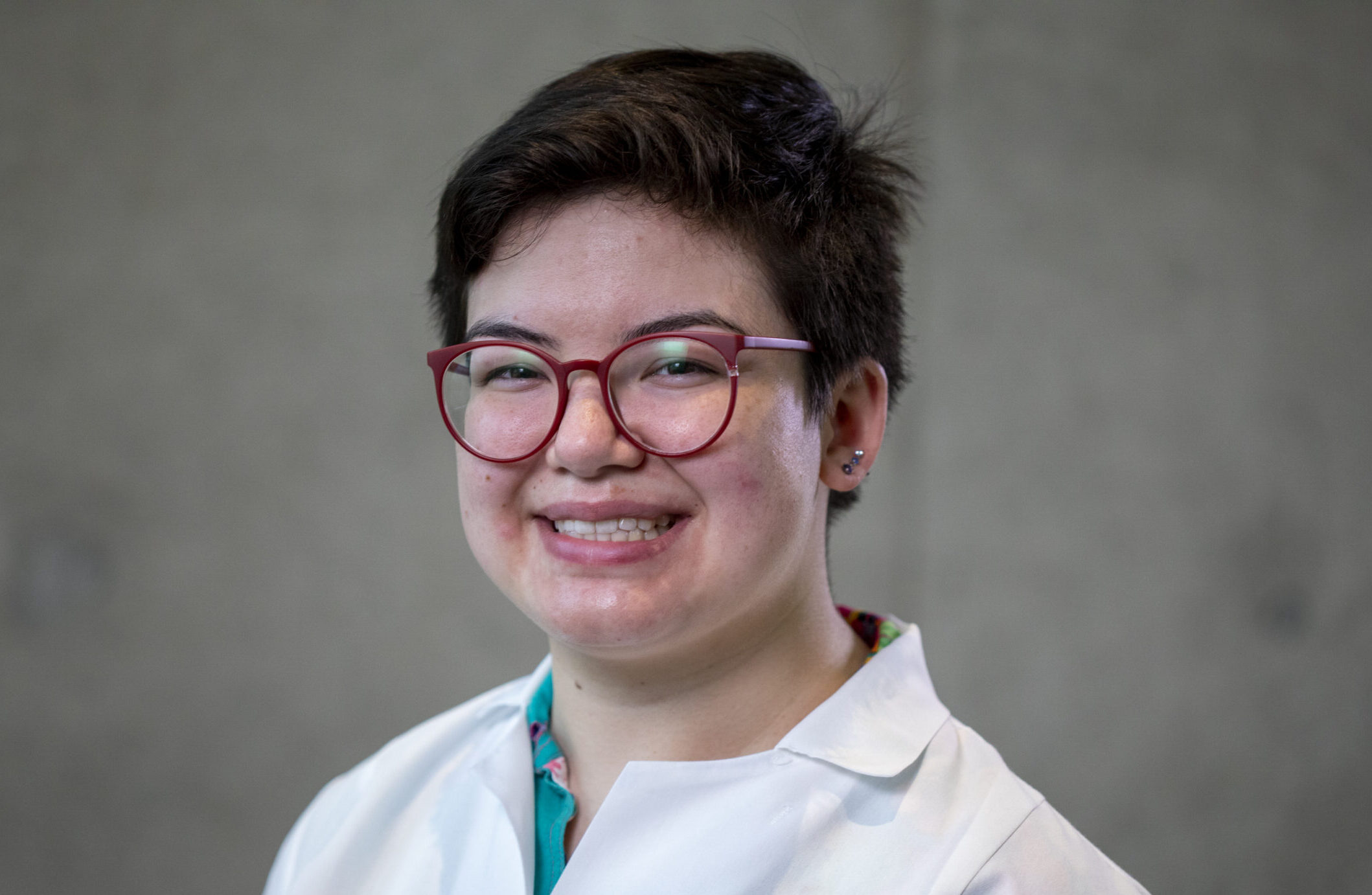Graduate student spotlight: Investigating the impact of toxins and nutrients on brain function and development
March 23, 2022

Throughout the year, we highlight Van Andel Institute Graduate School’s doctoral students. This month, we’re featuring April Rickle, a Ph.D. student in the lab of Dr. Heidi Lempradl. April studies the impact of toxins and nutrients on brain function and development.
How would you describe your area of study to someone without a scientific background?
I use fruit flies to study metabolic diseases. We can give fruit flies the same mutations that would lead to specific metabolic diseases in humans, and then look at the effects of that mutation on the whole metabolism of the fly.
What do you want to do with your degree?
I would love to get into research on rare diseases. It could be incredibly impactful to patients and their families to study the diseases that get much less attention. I also think that so many new and exciting scientific techniques and developments in the past few decades could be really insightful in studying rare diseases.
Did you take time off before starting your Ph.D. degree or come directly from an undergraduate or master’s degree program?
I came directly from undergrad, though I spent roughly a month the summer before I came here not doing work or school of any sort. Then, I had a temporary job driving a forklift, so I got a nice break from science work for a couple months!
Do you think that there is any value in networking with other graduate students in non-related fields?
Yes, of course! I think that science is becoming increasingly interdisciplinary — you never know when you might need to ask questions about history, math, art, etc., and having connections to people in those fields can be hugely beneficial on both ends.
Did your past experiences in life or education help prepare you for graduate school, or did you have to develop different strategies to succeed?
For me, undergrad was more structured and based in classes and homework than lab work. My first year at the Graduate School was a reasonable transition, as it’s almost all coursework, but transitioning to more self-motivated lab work has required me to improve my time management and ability to plan far in advance.
What is your favorite stress reduction technique?
I do a lot of crafts and small projects. A Ph.D. is a lot of work on a very long-term project, and it can seem like there’s no end in sight. I like to take on craft projects that are achievable in a weekend or two and that I know that I can finish quickly to give myself a sense of accomplishment.
Why did you choose Van Andel Institute Graduate School?
I really liked the problem-based learning at the Graduate School — it was a unique feature that I didn’t see anywhere else that I interviewed. The students all seemed happy, too; my favorite question to ask students at places that I interviewed was, “If you could change one thing about this program, what would you change?” VAI Graduate School was the only place where all the students that I asked said “nothing,” because they were happy with the program.
If you hadn’t been admitted to graduate school, what do you think you would be doing right now?
My joke answer that I would give my friends and family while doing grad school applications was, “If I don’t get in anywhere, I am moving to a remote cabin in Idaho and becoming a hermit.” Realistically, I think I would have ended up finding a lab close to home and doing tech work for a few years to build up my resume before applying again. I’d be closer to family and the Wi-Fi would be much better than in a cabin in the middle of nowhere.
Interested in Van Andel Institute Graduate School? Learn more at vaigs.vai.org and read previous student spotlights here. Read more about the M.D./Ph.D. program here.